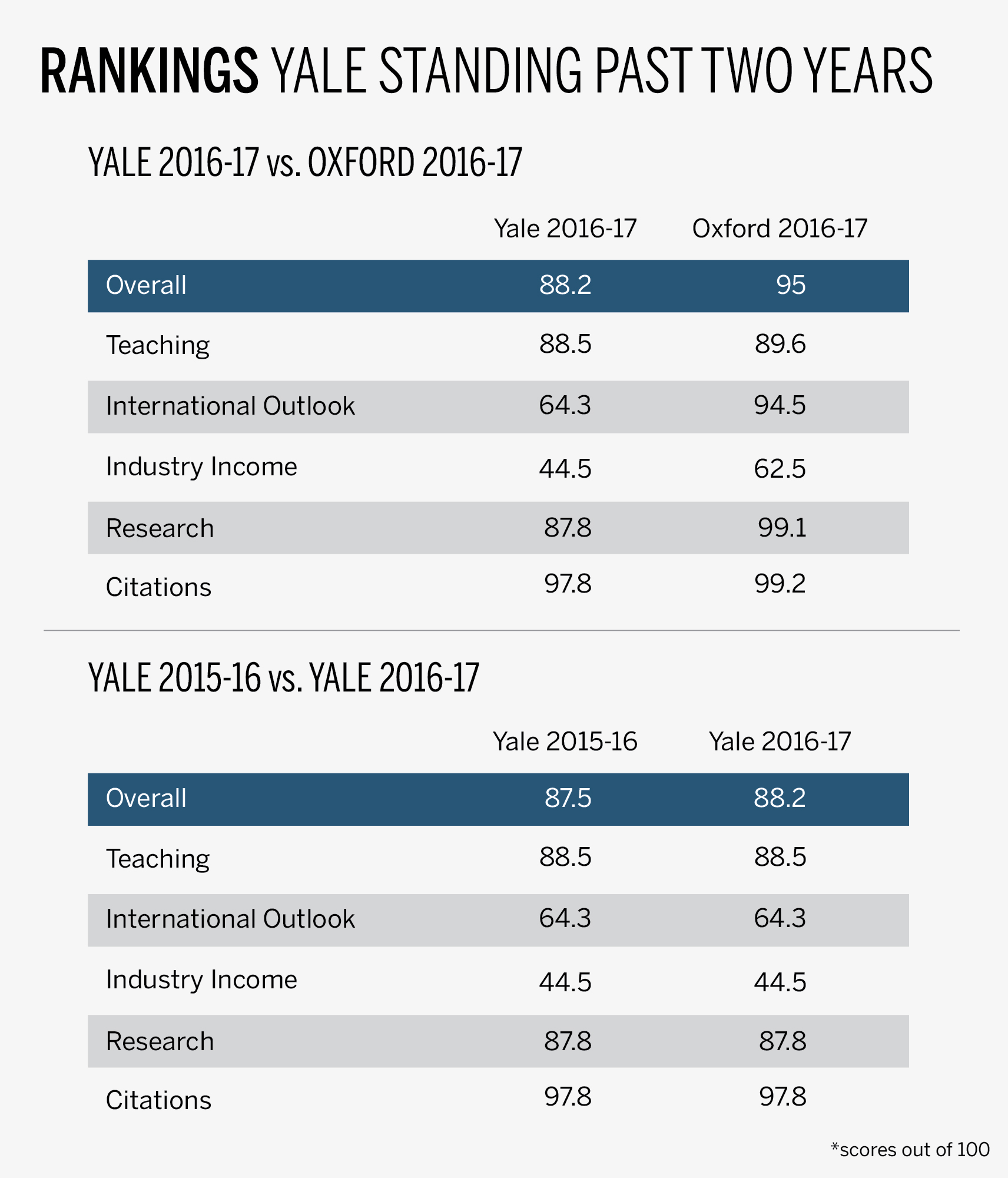
For the second year in a row, Yale finished 12th in the Times Higher Education World University Rankings.
The new rankings, released Sept. 21, mark the fifth time in seven years that Yale missed the top 10 on the THE rankings, a United Kingdom-based publication that annually releases one of the most well-known university ranking lists in the world. The University of Oxford came in first, breaking the California Institute of Technology’s five-year streak atop the rankings, while Harvard and Princeton came in at sixth and seventh, respectively. CalTech finished second and Stanford third.
THE has published its annual rankings each year since 2010. Its current methodology relies on scores in five different categories: teaching, research, international outlook, the number of times the work of a faculty member has been cited by other scholars and the industry income, which measures real world impact of research studies. THE then averages the five scores, all of which fall between 0 and 100, to obtain the school’s overall score.
Although Yale’s scores in three of the five categories saw improvements over the past three years — bumping its 2016-17 overall score up to 88.2, just under one point higher than last year’s score of 87.4 — it remained in the same place. The University’s lowest scores came in industry income and international outlook, two factors that measure innovation and global reach.
Regardless, several current and prospective students interviewed said Yale’s place on the list is not a cause for concern as they did not pay much attention to college rankings when it came to school choice.
“It was way more important for me to get an idea of the general atmosphere of a particular university and how I would feel there than to know how it did in fulfilling certain numerical criteria,” Weronika Betta ’20 said.
Aastha Kc ’20, who is pre-med, said although Yale’s STEM program often lags behind its peers in the rankings, its liberal arts education and financial aid policy were more important to her than the numbers on the list. University President Peter Salovey told the News in September that the school will focus more on STEM programs and on Sept. 22, the University announced the construction of the Science Building — efforts that signal Yale’s increasing attention to STEM and promises that may lead to better performance in STEM rankings.
Both Kc and Betta said rankings are useful when students are researching schools that are not as well known or are out of their home states.
But for international students in particular, rankings are a valuable way to evaluate schools.
“Coming from India, I only applied to tier-one schools because I thought that if the education I’d get in the States would be the same or worse than home, I’d be better off staying in India and having access to better opportunities simply because I am from there,” Surbhi Bharadwaj ’20 said.
Still, she acknowledged that rankings do not matter much for established, world-renowned universities like Yale.
Sofia Toporkova, a high school student from Russia who is currently applying to colleges, agreed, adding that she does not see much difference between a school in fifth place or one that ranks 25th.
The Times Higher Education World University Rankings changed its model for ranking schools in 2010.







